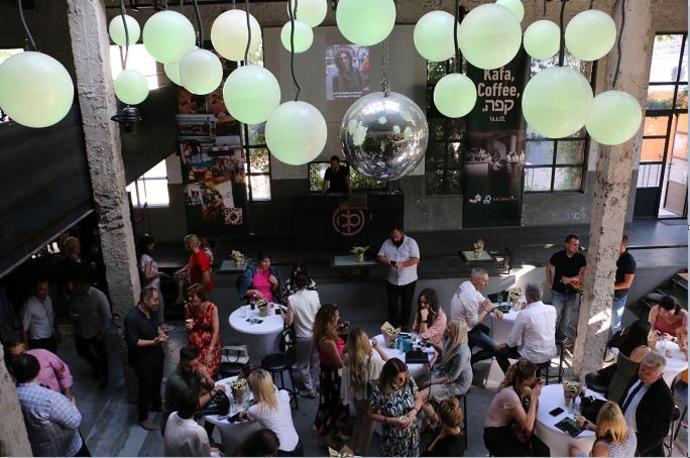The first coffee event of its kind – the East-West Coffee Festival – was the idea of Shiri Vilan, wife of Israeli Ambassador to Serbia Yahel Vilan, who visited a coffee exhibition at the Museum of Islamic Art in Jerusalem and was impressed by the cultural parallels between Serbia and Israel in this regard. At the East-West Coffee Festival in Belgrade, the capital of Serbia, the guests enjoyed coffee-themed Hebrew-Serbian music, tasted various coffees, and enjoyed a lecture by the Israeli coffee sociologist Noa Berger. Berger, the editor of the book "Coffee: East and West" together with researcher Yahel Sheffer, who came to the Balkans as part of the embassy's invitation.
Compared to other culinary diplomacy events, the coffee culture of Serbia and Israel share a number of similarities. This is primarily due to the influence of the Ottoman Empire in the Balkans and the Middle East. "The ways in which coffee is made have been preserved in the form of what we know as black coffee, unlike in Europe when they started adding milk," said Berger during the festival. Identifying this common element between the countries, which are celebrating thirty years of diplomatic relations, has made the choice of coffee even more relevant in a place like Belgrade.
The lecture provided a glimpse for participants into the culture and history of the State of Israel through coffee, and in this way, diplomacy reached the tables of coffee lovers in Serbia.

The world is crazy for coffee, and there has been a steady increase in the number of coffee consumers in recent years. Today, coffee is considered a luxury drink – not unlike wine. Hence, there is an understanding it can be of interest to a broad and diverse target audience.
The target audience for the event included foreign diplomats, journalists, business people, academics, café owners, baristas, bloggers and other embassy guests.

